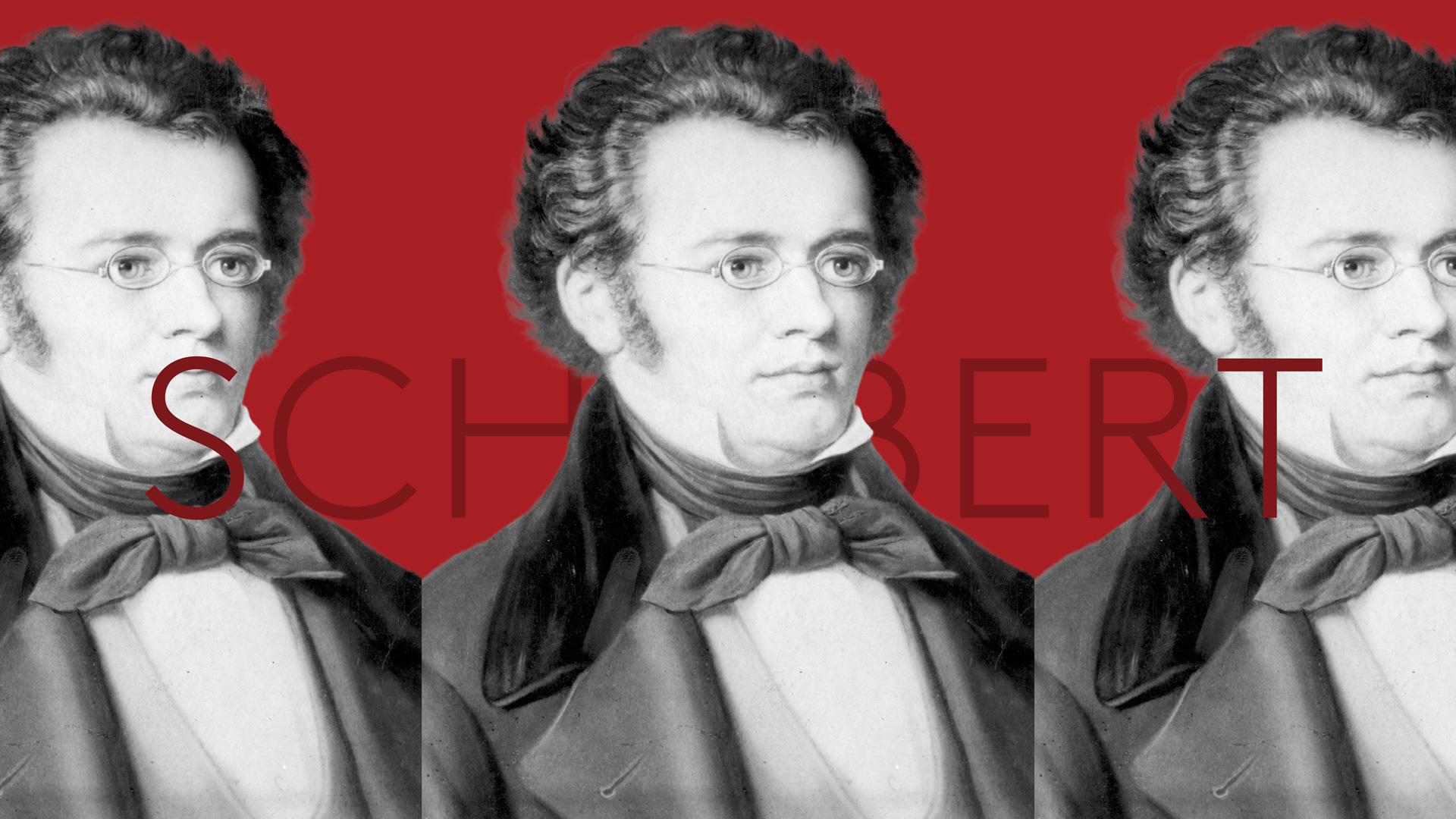Music writer Alison Wormell explores one of the great masterpieces of the string quartet repertoire—Early Romantic era composer Franz Schubert’s fourteenth quartet—Death and the Maiden. Hear it performed live on our upcoming national tour of Convergence this October.
String Quartet No.14 in D minor, Death and the Maiden (1824) by Viennese composer Franz Schubert (1797-1828) is a primal cry of pain from a man destined to die, isolated from his community, and taking huge solace in his imagination. It is also considered one of the greatest chamber works ever written.
To understand why Schubert was in such despair in 1824, we need to look at his life more widely. He was an extremely prolific composer, writing almost 150 songs in the year that he was 17, and averaging at least 65 bars of new music every day throughout his life. A huge amount of Schubert’s music is German Song or lieder for piano and voice, but his skill of writing beautiful melodies and rich harmonies spills over into the rest of his music too.
Reflections from his friends show Schubert to be a man with two characters – one full of hedonistic sociality, balanced by a deeply melancholic streak. Under Viennese law he was deemed too poor to freely marry and so Schubert felt his two options were to lead a desolate, lonely life or a life of wild sexual promiscuity. His rise to fame in 1821 created the perfect outlet for his extroverted self, even though he harboured worries about being destined to be an outsider.
How the mighty fall! Schubert fell ill in 1823, probably with first stage syphilis, which rendered him housebound for a period. Later in his illness, he was prevented by his symptoms from accepting social invitations. Although the symptoms of syphilis are intermittent and Schubert would have had periods of relative good health, when the outlet for his sexual and social appetite was stripped away, he was left alone with his melancholic self to cope with the reality of his illness and impending death.
Trapped in an impossible situation, Schubert lacked the means to rise above despair. The only route left to him was to completely lose himself in the fascination and satisfaction of music. Suddenly, the success of his String Quartet No.14 becomes clear. With no other outlet, Schubert put his whole self into the extraordinary music he wrote.
This quartet takes its title Death and the Maiden from his song of the same name written seven years before. The theme of the second movement is drawn from the lieder’s piano accompaniment, which then undergoes five variations. The lyrics tell the brief story of a maiden on her deathbed, fearful and begging to be passed over, but then Death comes as a friend and comforter – not an executioner – and offers her a safe passing. Perhaps this is why the second movement is the most untroubled of the quartet.
The piece as a whole can be seen as a rumination on death, or an expression of Schubert’s battle with his own impending passing. Throughout the work, sharp changes between loud and soft dynamics creates a feeling of instability and unpredictability; the listener is constantly hounded by a sense of trepidation. The final movement – a saltarello, which is an Italian dance – has been likened to the tarantella, a similar dance traditionally used to ward off death.
This personal and urgent consideration of death, combined with Schubert’s skill at transforming the sound of four string instruments into orchestral textures creates a singular work that transcends time and continues to put modern audiences in touch with their own mortality.
© Alison Wormell 2025
ABOUT THE AUTHOR
Alison Wormell (they/them) is a music writer whose work focuses on demystifying classical music. Alison has written for Gramophone’s Opera Now Magazine, Southbank Sinfonia, Australian String Quartet, Lapland Chamber Orchestra, Australian Youth Orchestra, Cut Common Magazine, and Things Musicians Don’t Talk About.
